Kappabashi Kitchenware Town: Supporting the Japanese Culinary Culture
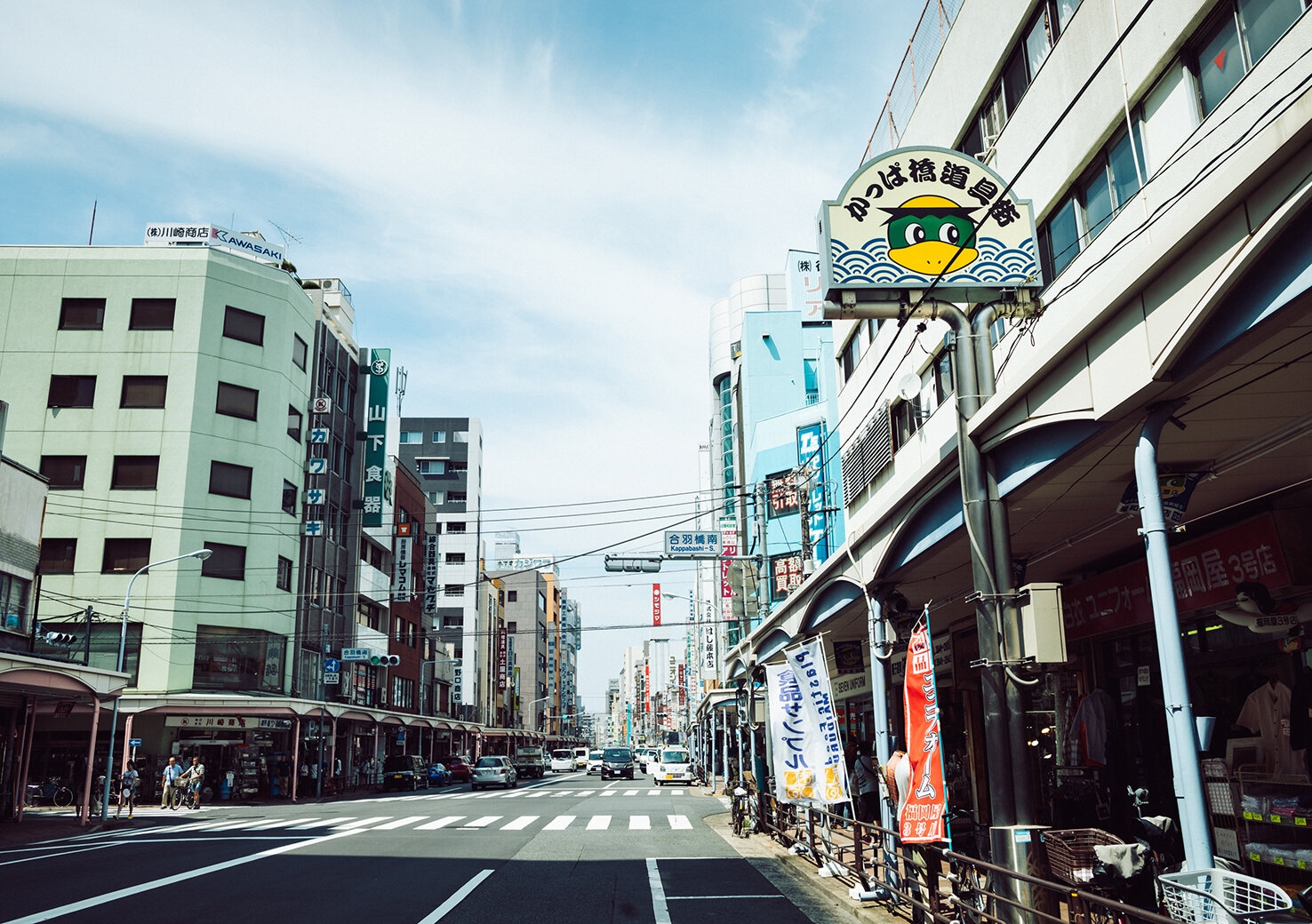
Kappabashi Dougugai is a town of kitchenware that stretches about 800 meters north to south, roughly between Ueno and Asakusa area. You can find all kinds of culinary tools in this shopping area with many long-established shops standing side by side. Many of them have been around since before the World War II and are highly trusted by professional chefs. Recently, this area is receiving attention from international tourists who have begun to find out about it in the wake of Tokyo Skytree's opening, making "Kappabashi" a word that is recognized throughout the world. We have stepped into several shops in the neighborhood where food lovers of all kinds gather.
Niimi Yoshokkiten
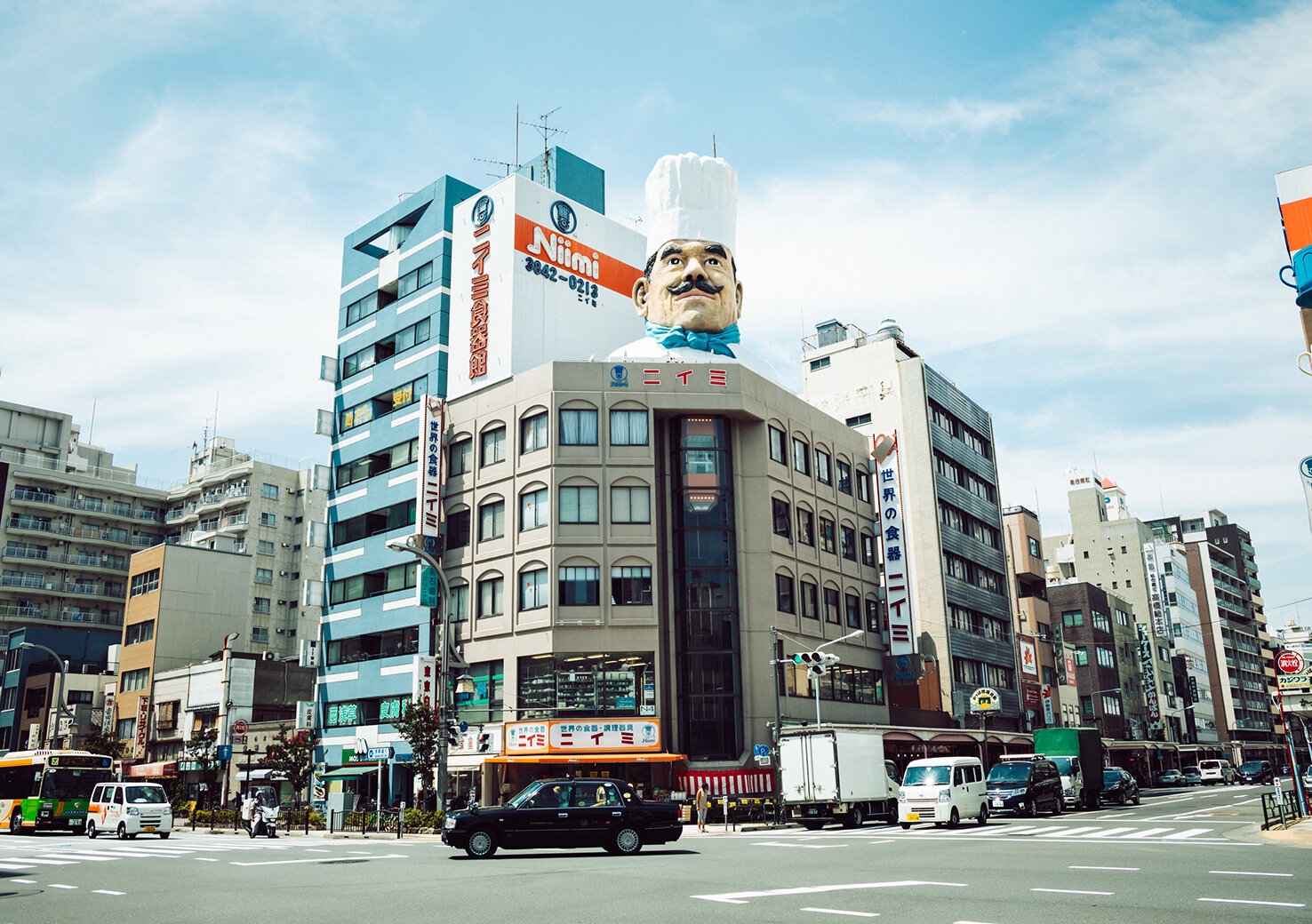
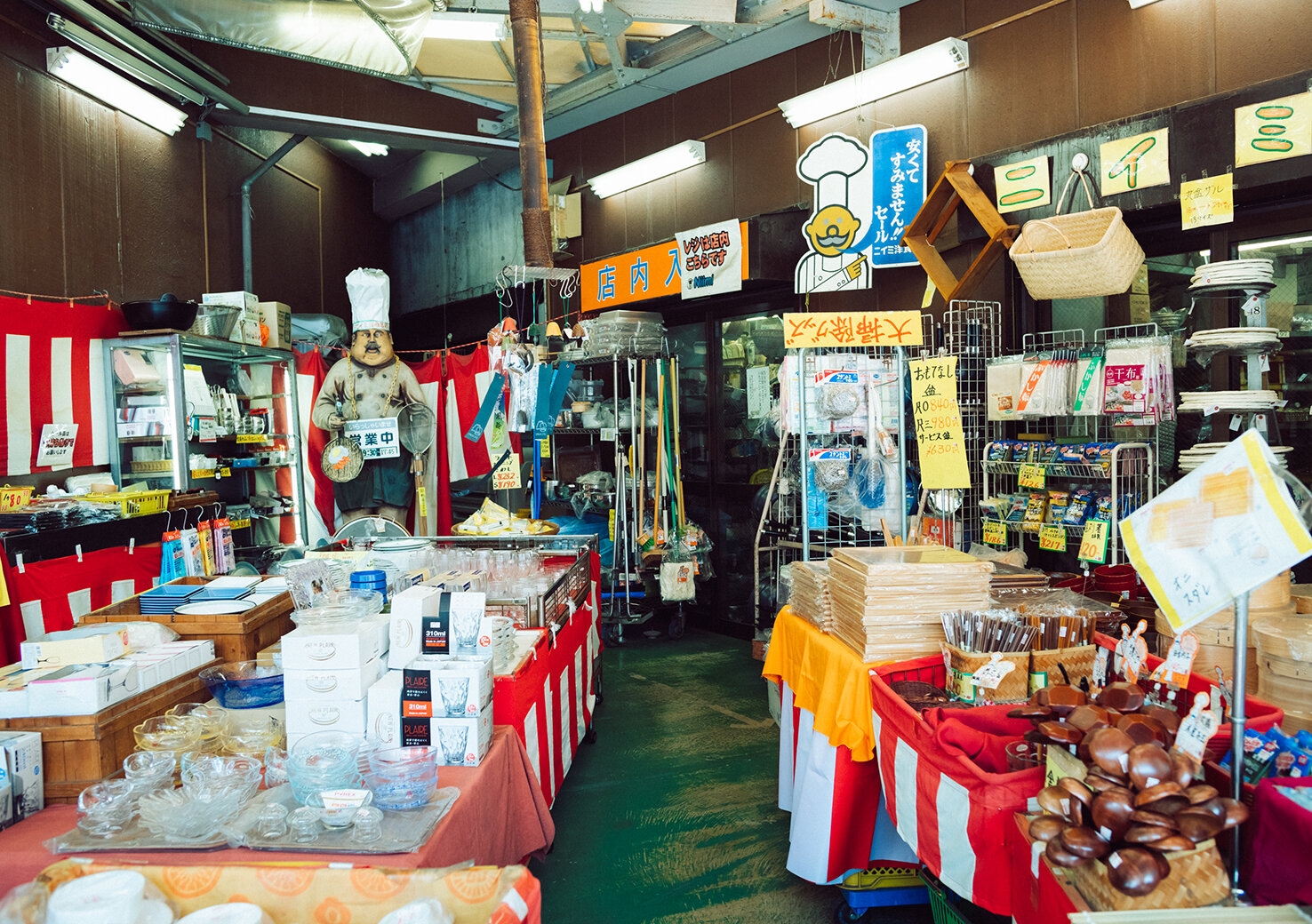
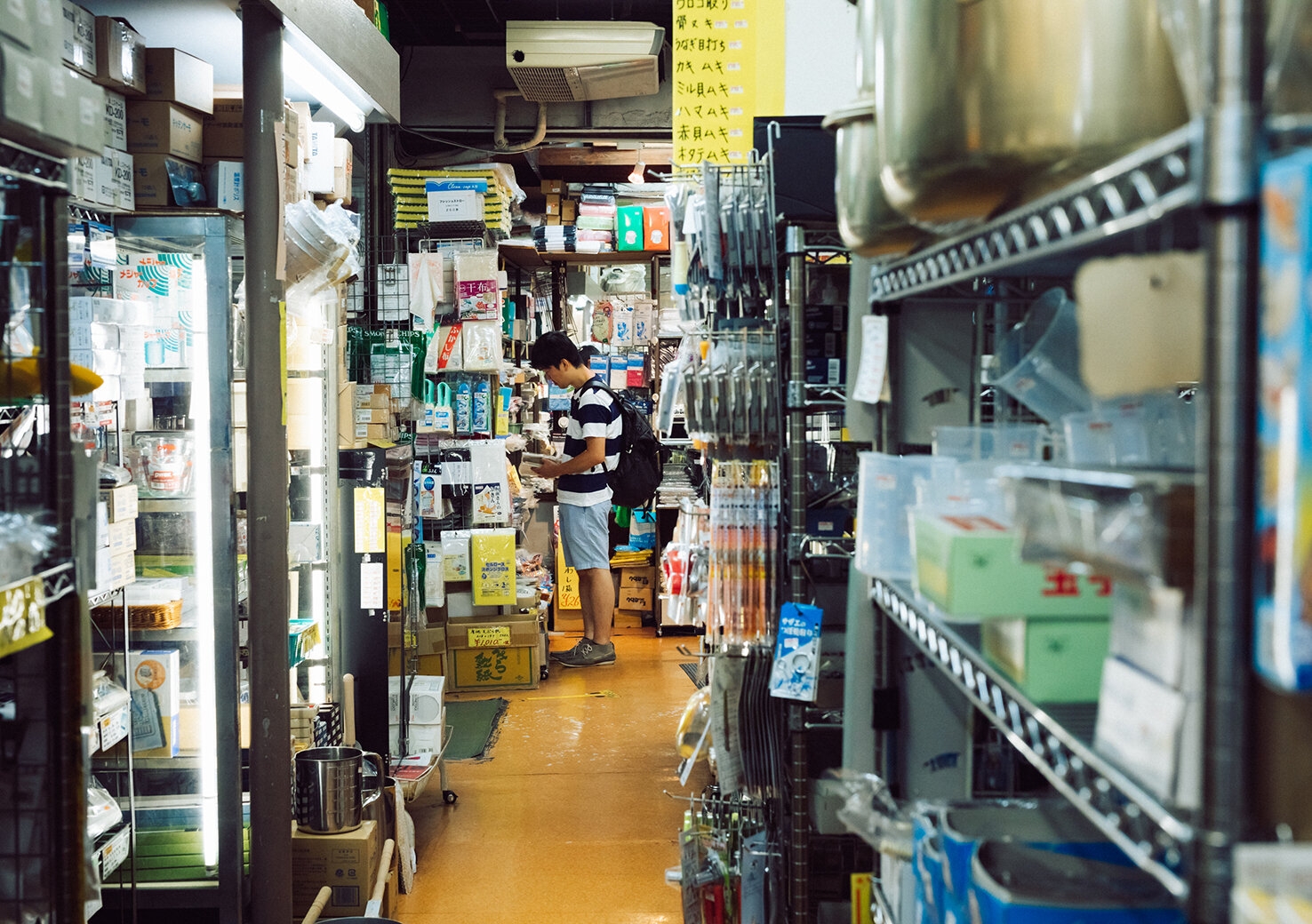
If you look up from Kikuyabashi Intersection at the entrance of Kappabashi Kitchen Town, a gigantic statue of a chef's head will come into sight. This is a signage of Niimi Yoshokkiten (Western-style Tableware Shop) and the face of the late Zenichi Niimi who was its second-generation store owner. Today, it is familiar to most as the symbol of Kappabashi area. Once you step into the shop's spacious interior, you will be amazed by the sheer amount of products. It feels as though you can complete all your shopping right here, before you even walk around other areas of the kitchenware town. Filled with various products that are stacked in rows, it runs the whole gamut from standard to niche products that suit your every need. As you shop around, you might come across products that you are amazed to find or make you wonder what it could be used for. It is like treasure hunting with new discoveries and wonderful encounters. The amount of products is a manifestation of how the cooking equipment specialty shop tries to cater to every conceivable need of cooks.
Location: 1-1-1 Matsugaya, Taito-ku
Tel: 03-3842-0213
Opening hours: Monday-Saturday 10:00 a.m.-5:45 p.m.
Closed: Sunday, and holidays in January
Soutei Yabukita
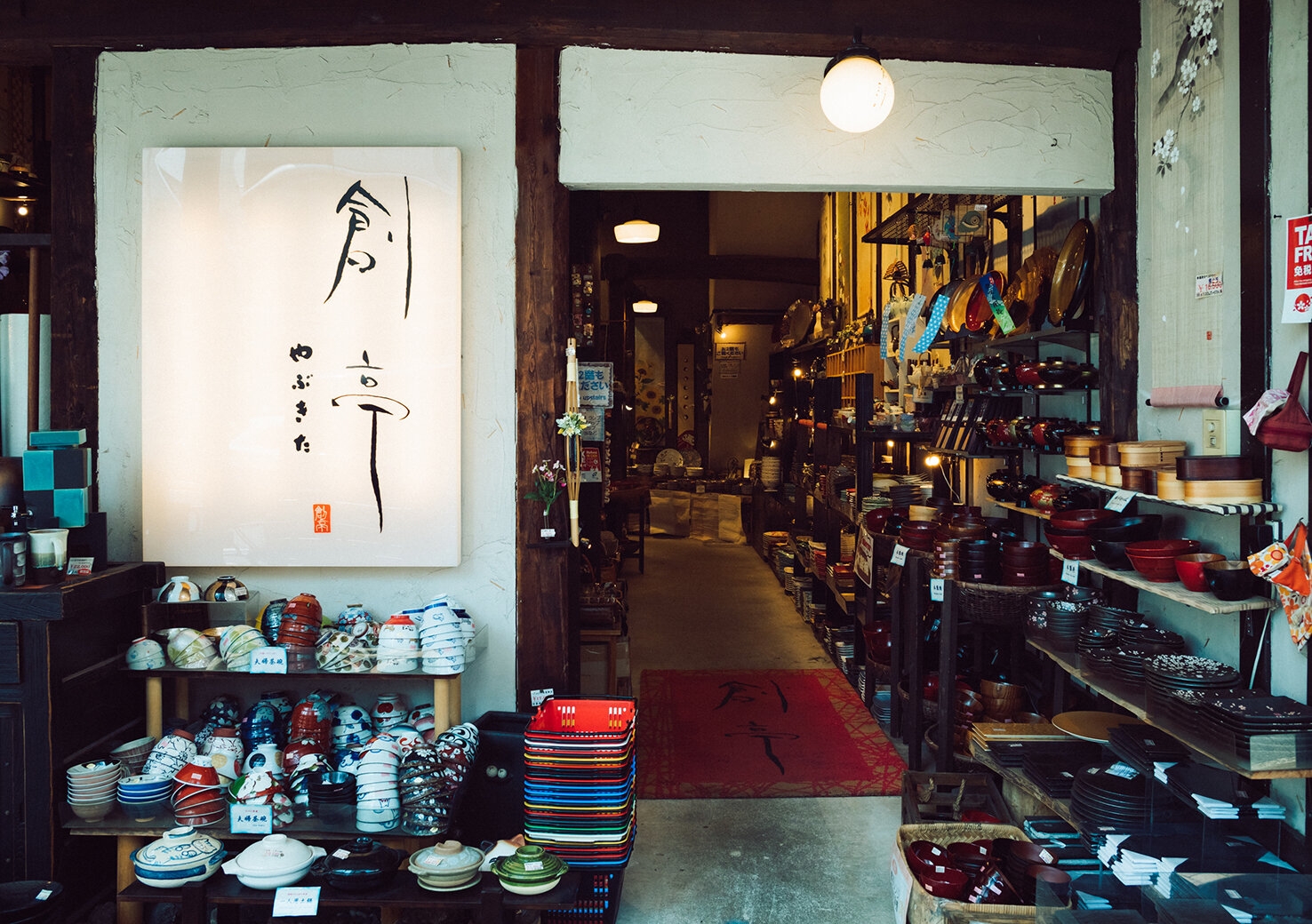
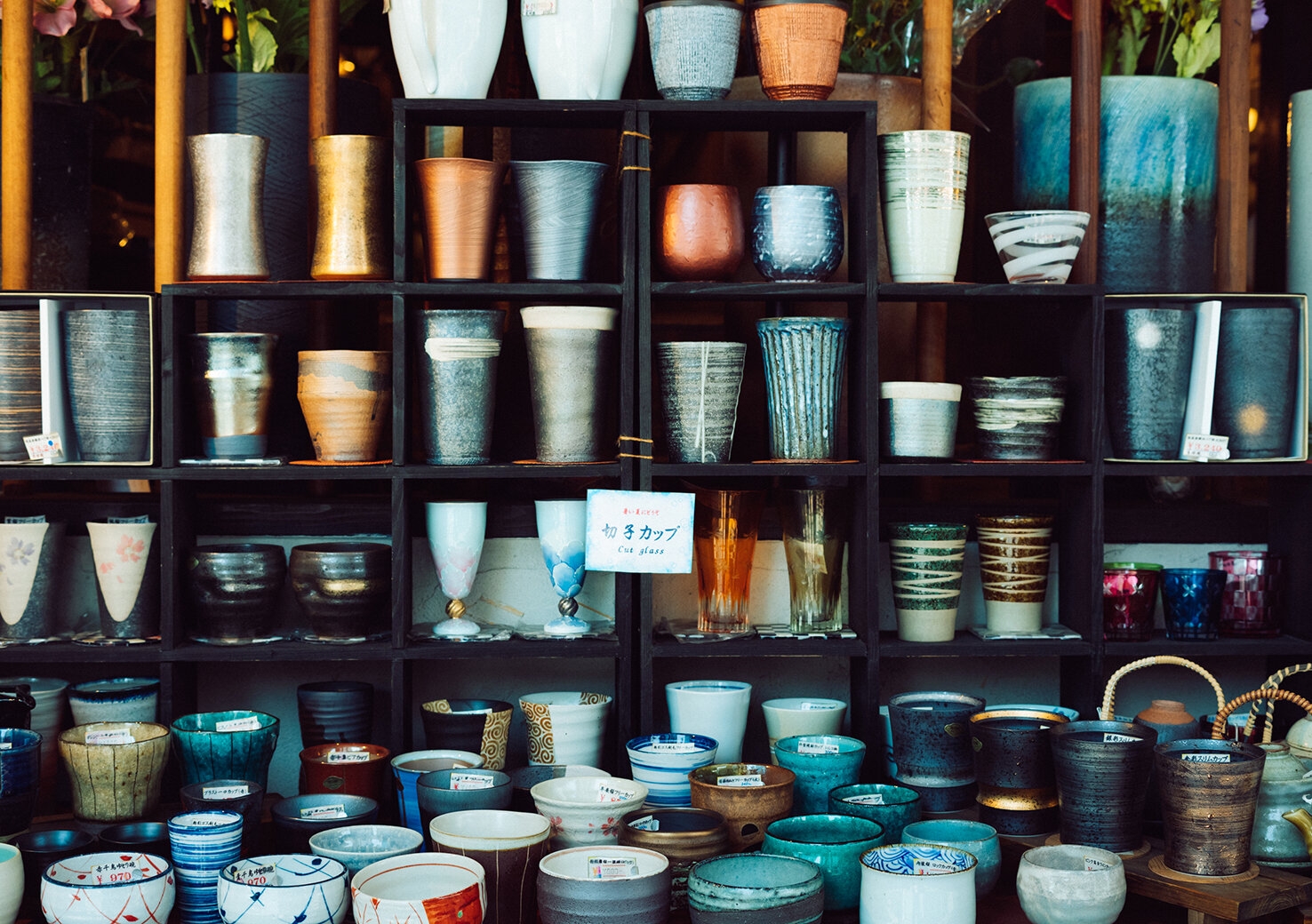
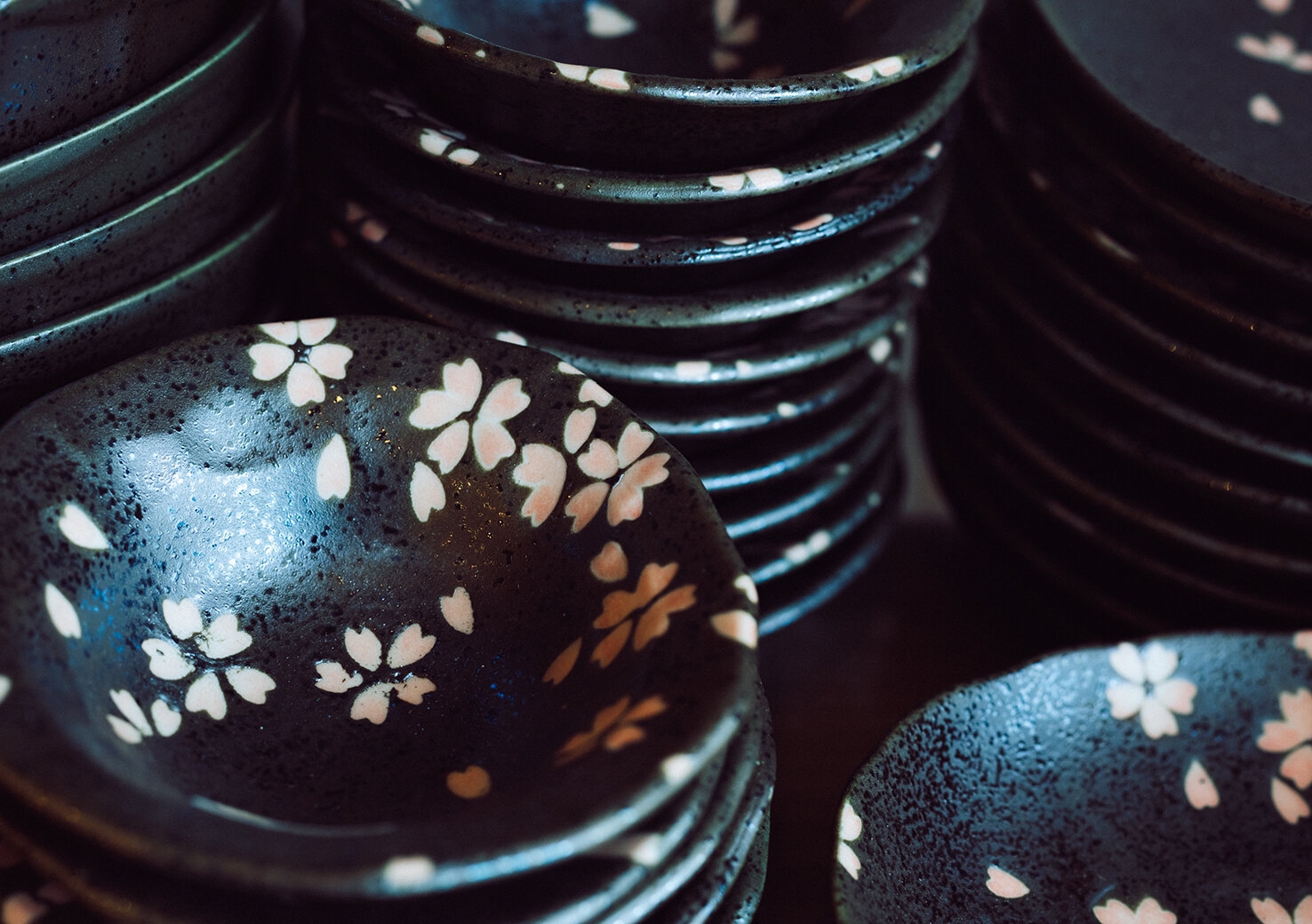
Soutei Yabukita opened as a branch of Touan Yabukita, which deals with professional-use Japanese tableware. In the past, the former was just a Japanese-style interior shop that sold products like vases and hanging scrolls. However, it started to sell Japanese tableware as well since its renewal opening five years ago. Once you are guided inside the store by a signboard that looks like that of a ryotei (high-class Japanese restaurant), you will see a wall covered with vessels and furnishings. Because most of their clients are in the restaurant business, there are abundant light and durable arita-yaki ware. Tablewares like shigaraki-yaki ware, kutani-yaki ware, lacquer ware are also on hand to compliment the food and flowers that will be placed in them. A series of products with intricate paintings of sakura (cherry blossom) petals are popular among foreign tourists who are increasing every year as washoku (traditional Japanese food) becomes a worldwide trend. We imagine that there will be more opportunities to see Japanese tableware set up on dining tables around the world.
Location: 2-1-12 Matsugaya, Taito-ku
Tel: 03-5828-5081
Website: https://yabukita.wixsite.com/souteiyabukita
Opening hours: Monday-Saturday 10:00 a.m.-5:00 p.m., Sunday and holidays noon-5:00 p.m.
Closed: not applicable
Kama-asa Shoten
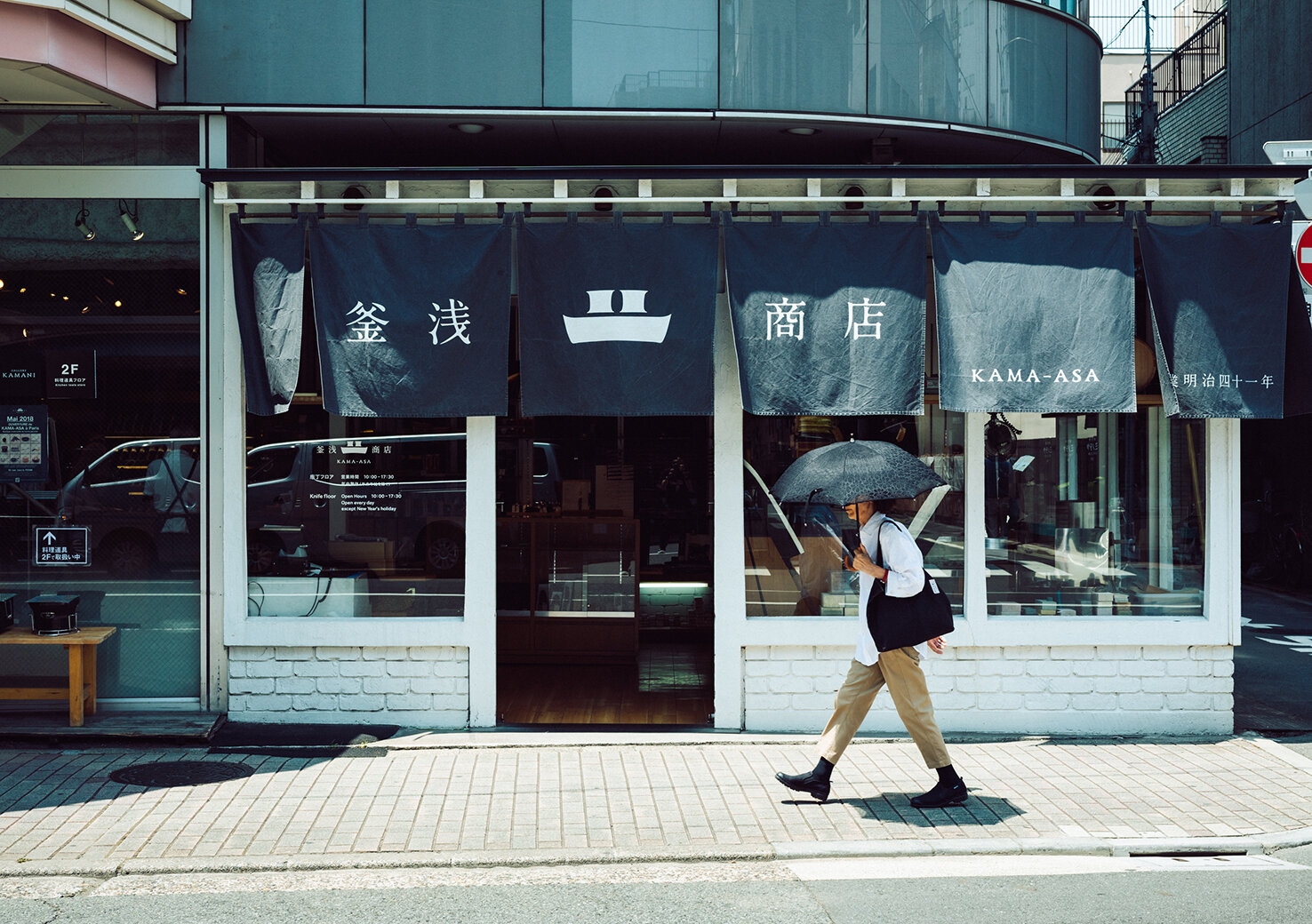
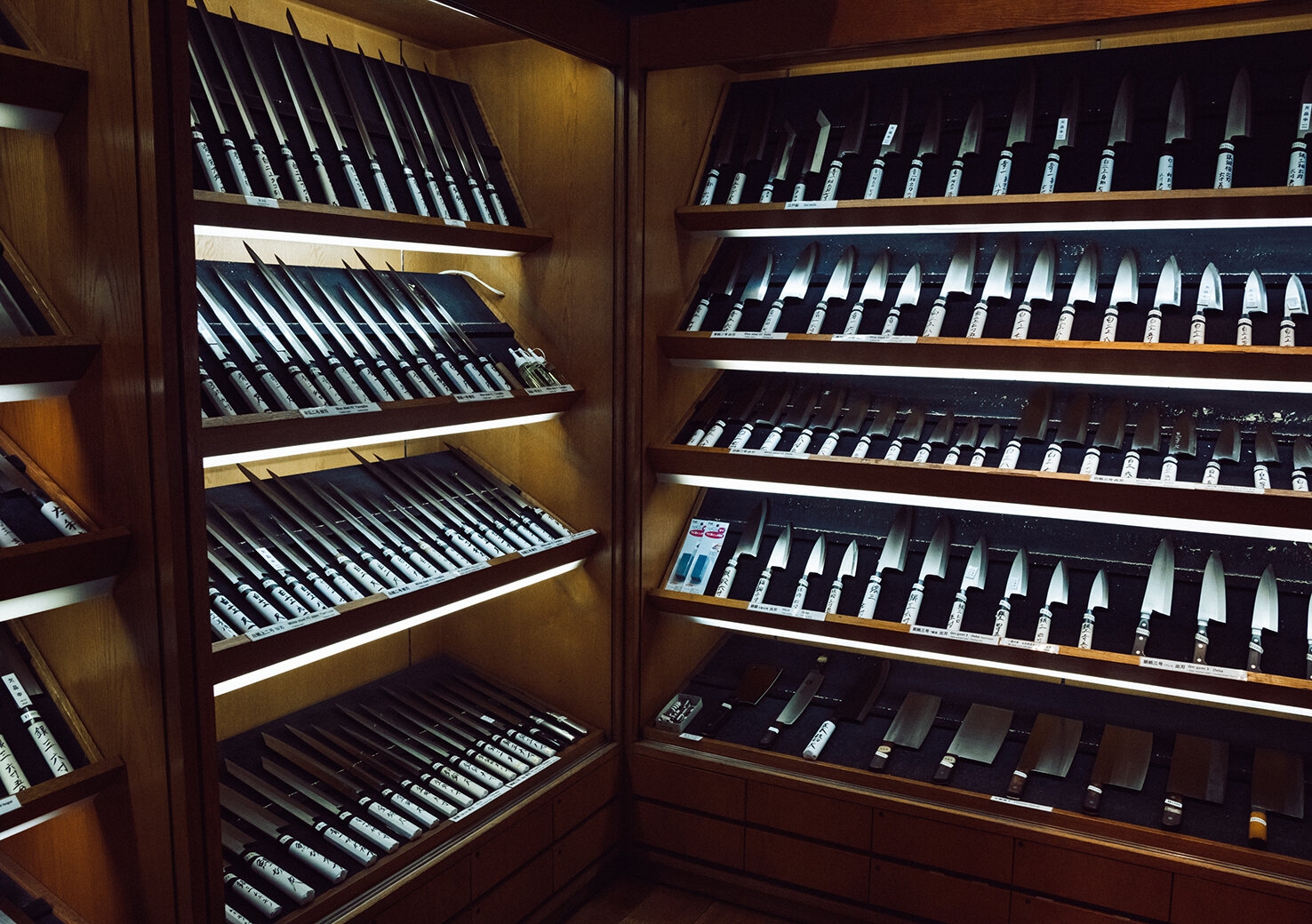
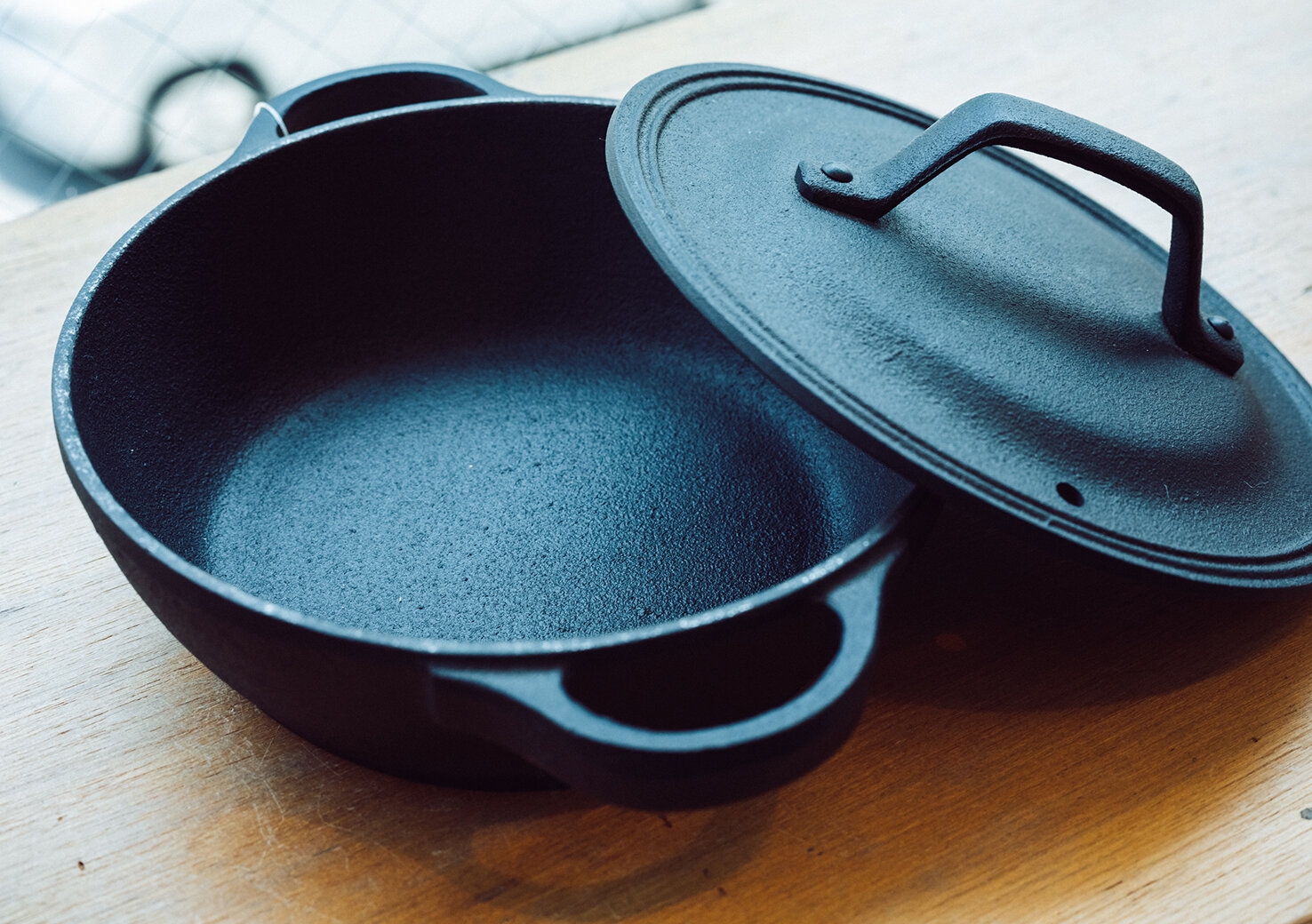
Celebrating its 110th anniversary this year since its establishment, Kama-asa Shoten has been offering cookwares such as kitchen knives, Nambu cast ironware, yukihira pans and kama (cooking pots), hence the store's name. With a concept "Ryoridougu: good tools are made with good reasons," products are developed to accommodate the challenging demands of top-ranking chefs. Having opened a branch in Saint-Germain-des-Prés, Paris in May 2018, it is especially a unique store in Kappabashi. As you pass through its noren (doorway curtain) to step into the store, you will notice that the first floor is dedicated to kitchen knives. About 80 varieties of 1,000 kitchen knives are available to touch with your own hands before making a selection. Out of respect for knife craftsmen, the store name is not engraved on the knives. Instead, the store provides a service to carve the name of a chef's who buys them. On the second floor, original products like shallow cooking pots made with hand-hammered cooking pans and Nambu cast ironware are showcased. Each product is filled with time-tested wisdom and designed to grow on you the more you use it, so that you will enjoy using it forever. Currently, the floor dedicated to cooking implements is getting renovated and expected to open around autumn in 2019 with a new event space cum kitchen on its fifth floor. The store's intention to spread the thoughts of craftsmen and stories behind each product's creation can felt everywhere inside the shop.
Location: 2-24-1 Matsugaya, Taito-ku
Tel: 03-3841-9355
Website (English) : www.kama-asa.co.jp/en
Opening hours: 10:00 a.m.-5:30 p.m.
Closed: New Year's holiday
Ganso Shokuhin Sample-ya
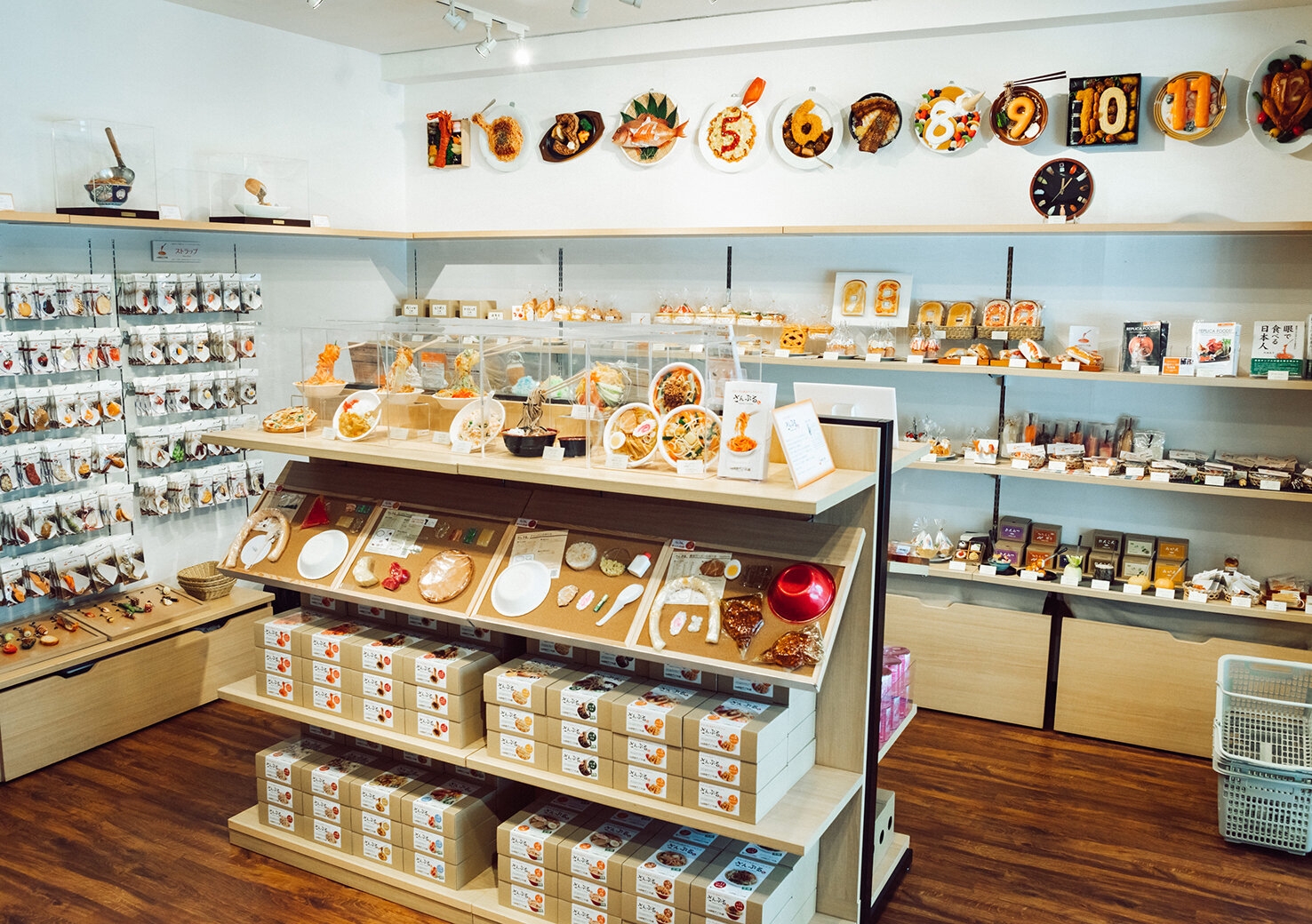
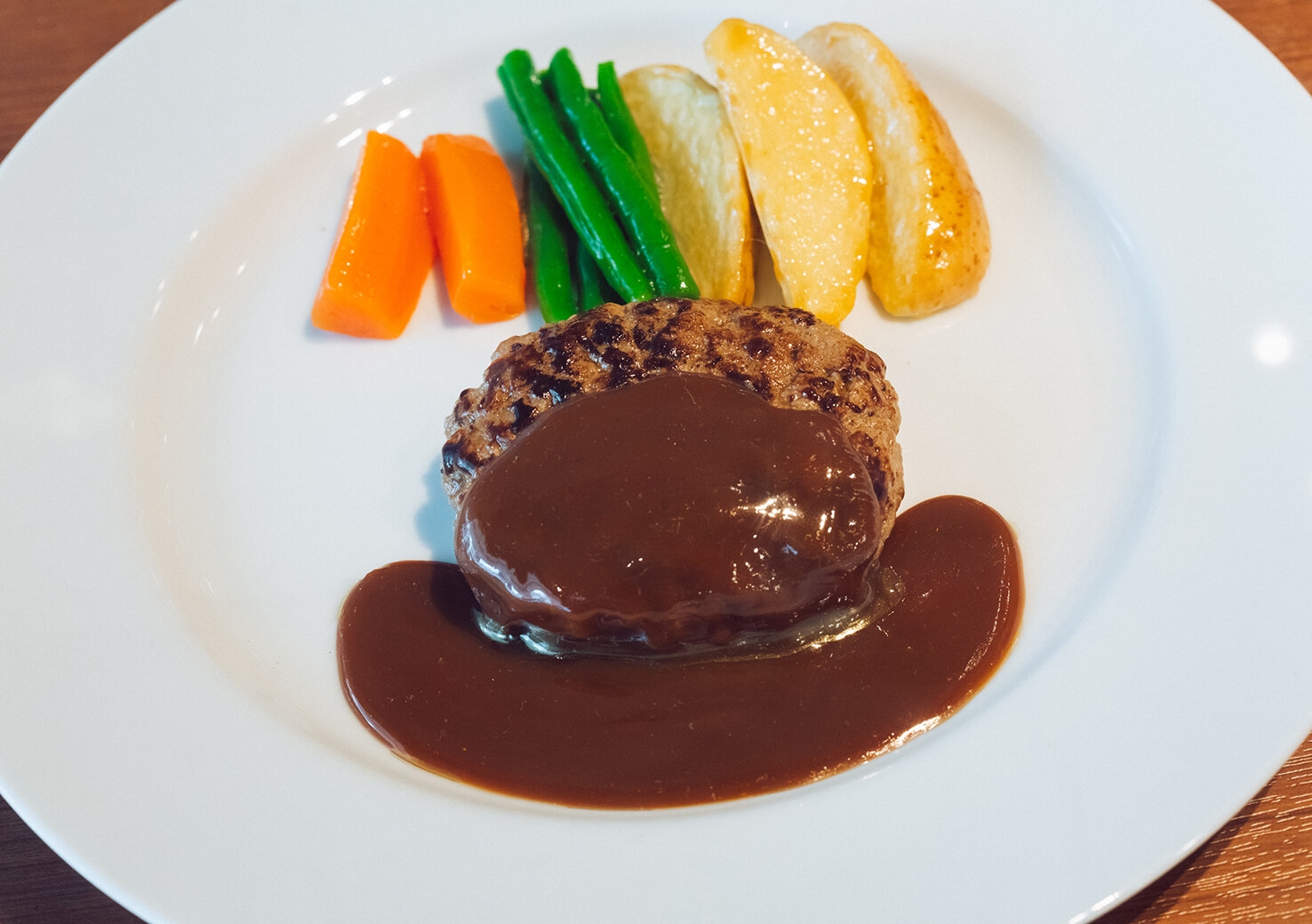
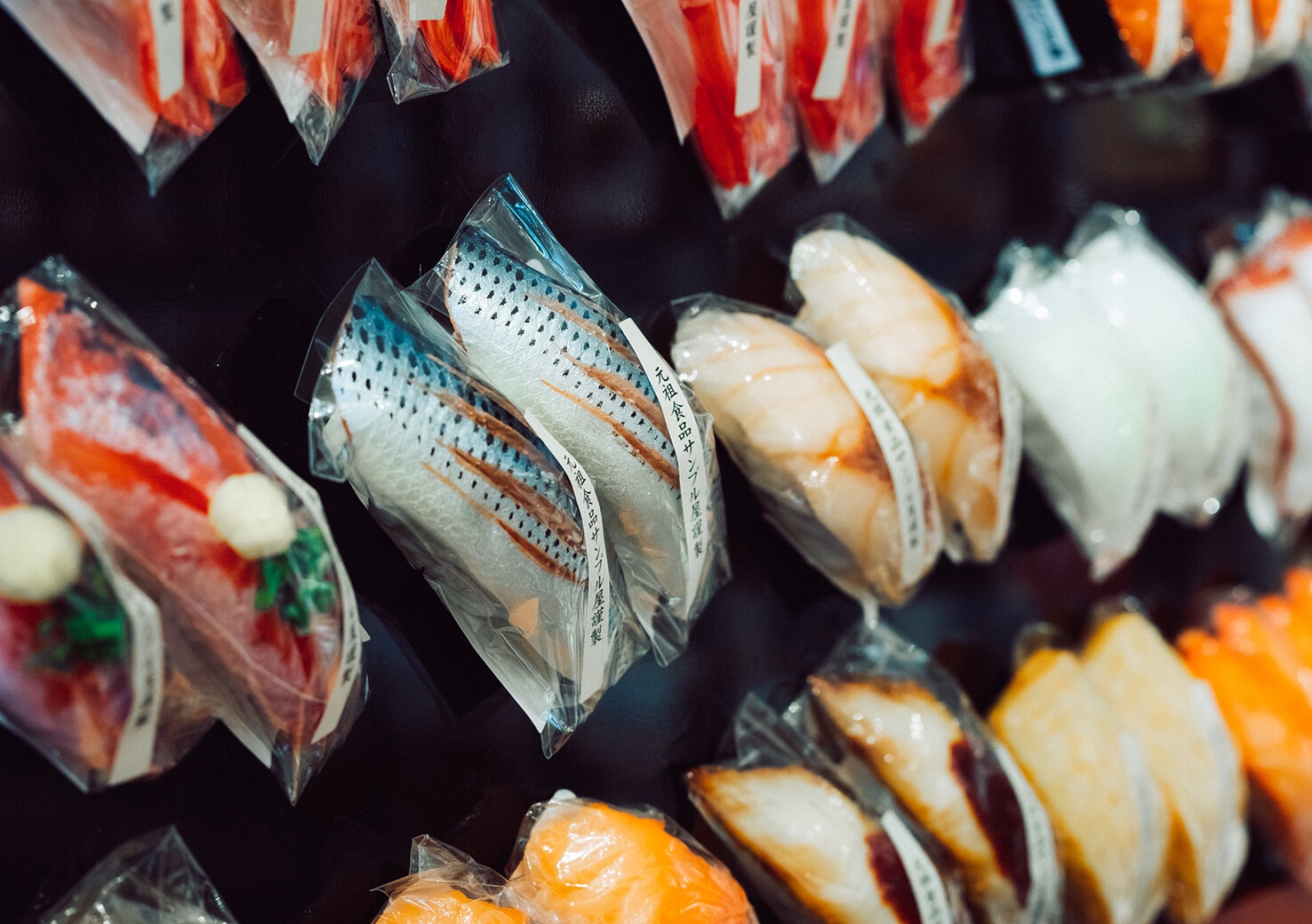
Many restaurants and cafes in Japan have replicas of dishes at their storefronts, which is a culture that is unique to this country. At Ganso Shokuhin Sample-ya, craftsmen's high skills and creative ideas, not only produced food replicas but also various original and fun products such as magnets and bookmarks. Inside the store, displayed food replicas of runny sunny-side up, spaghetti topped with melted cheese, and charcoal-grilled salmon fillet are all so realistic that they look as if steam is rising from them. The first floor is the store, the second floor is a hands-on area that is bustling with primary school students, students on school excursions, as well as adults that are into food replicas. Kits called "Sampurun," which you can make at home, are very popular as science projects assigned during the summer vacation. They are available for beginners to advanced, so why not start your own quiet hobby as an adults?
Location: 3-7-6 Nishi-asakusa, Taito-ku
Tel: 0120-17-1839
Reserve by phone to experience food replica making.
Website: www.ganso-sample.com
Opening hours: 10:00 a.m.-5:30 p.m.
Closed: not applicable
Tousyougama
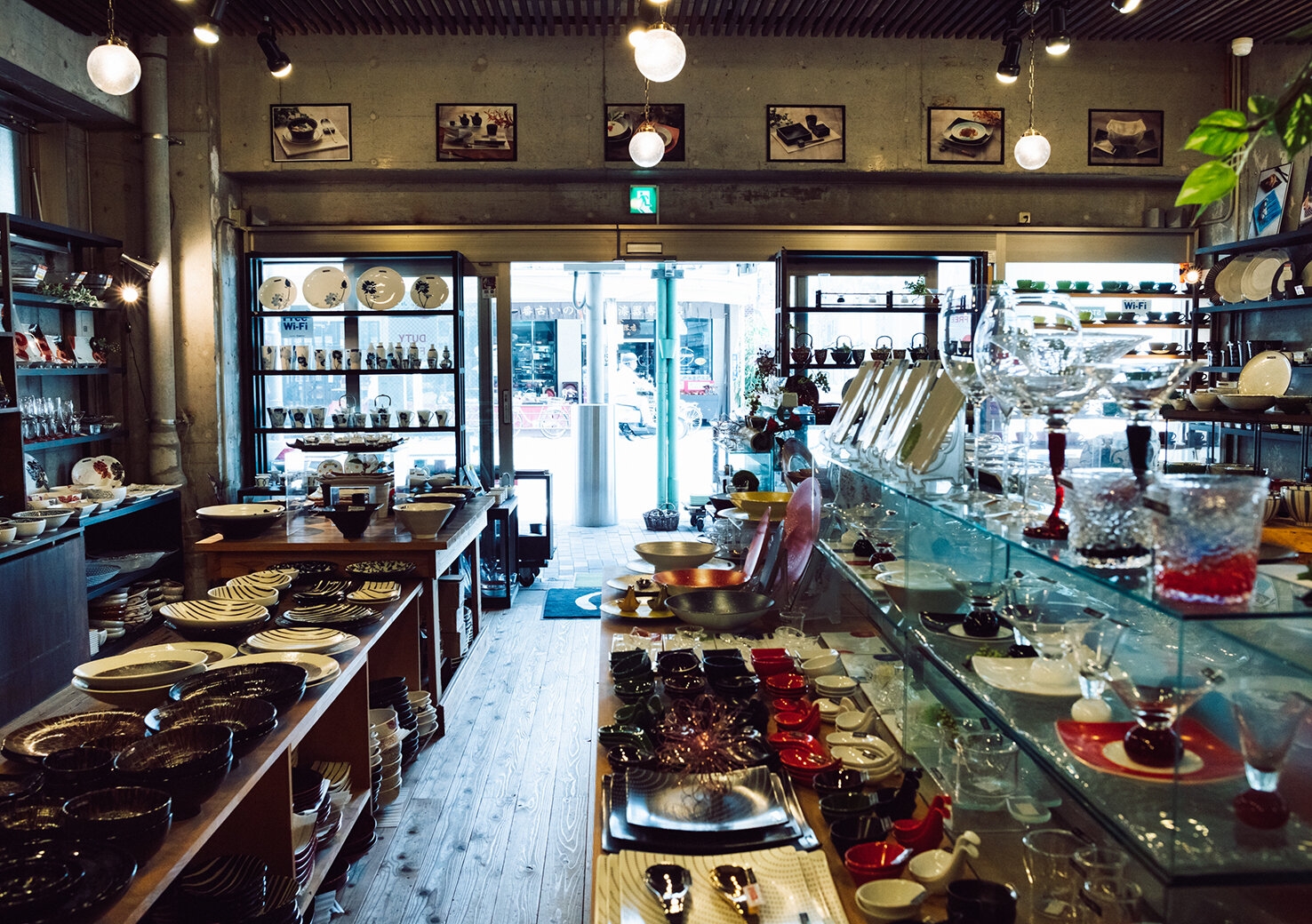
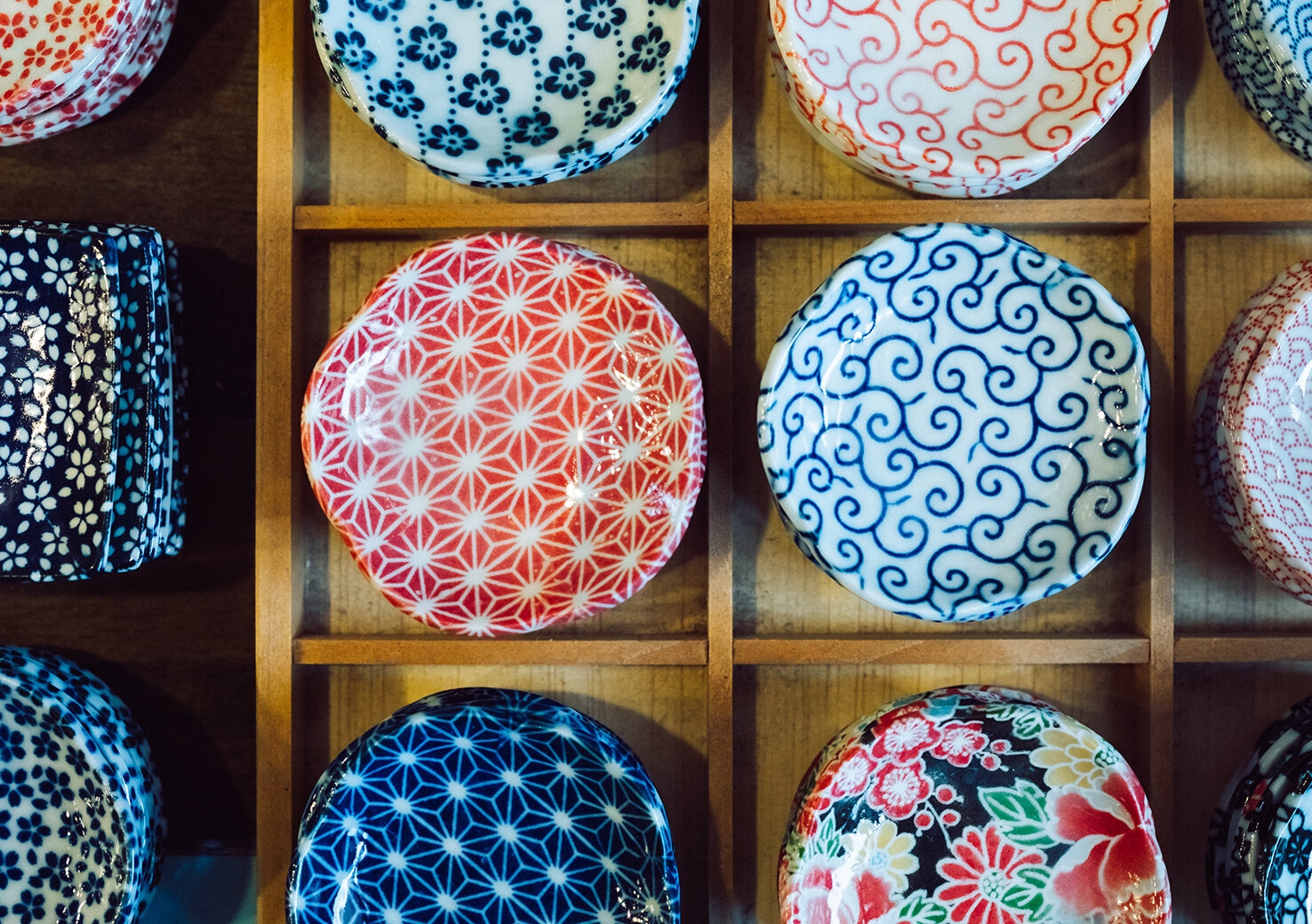
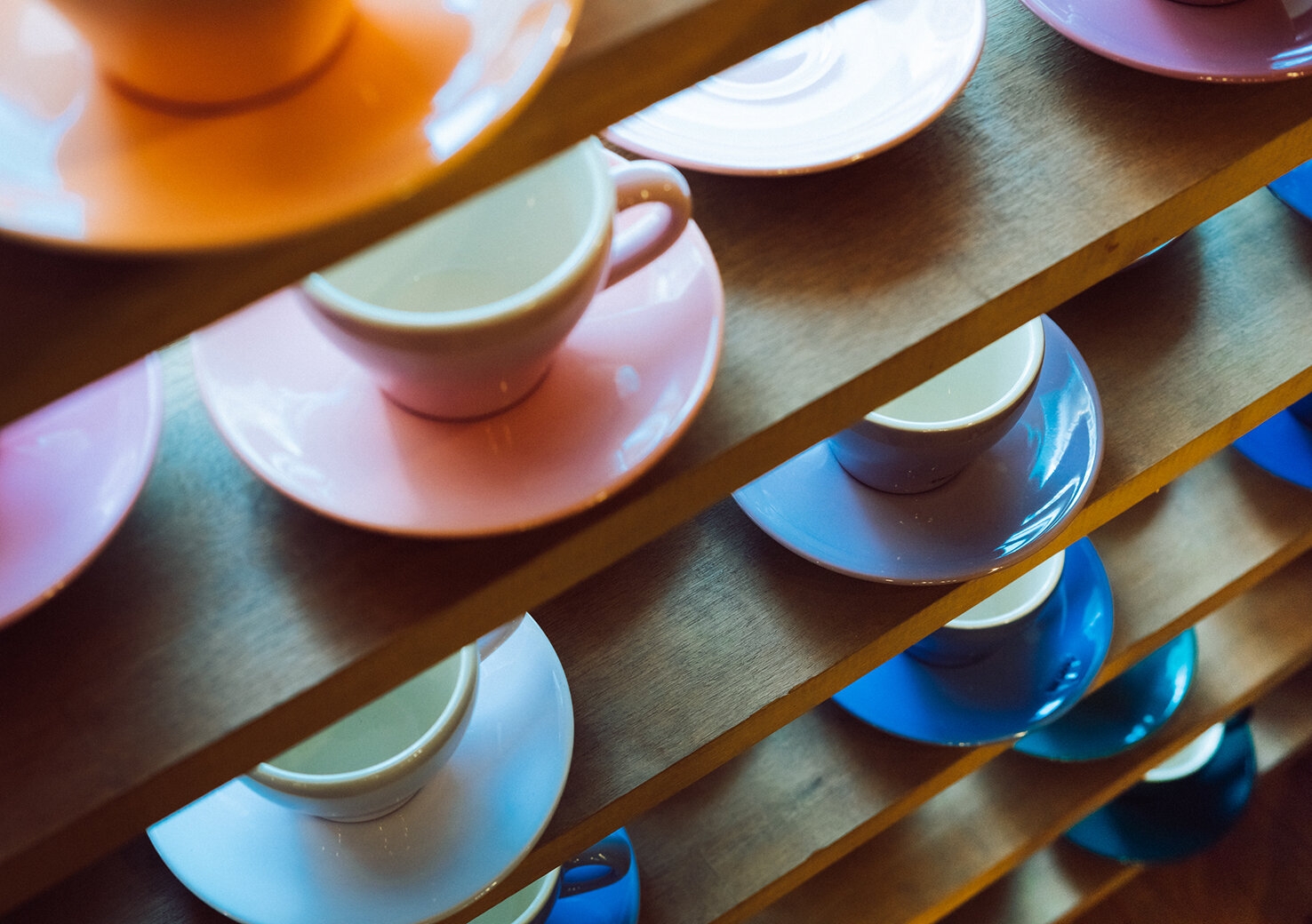
Tousyougama produces original Japanese tablewares by applying distinctive designs to traditional mino-yaki wares that are widely used in common households. Unique assortments of products themed around modern Japanese are favored among overseas buyers. As you peruse their product lineup, you might come across oddly shaped dishes which you have no idea what they could be used for, while others may inspire a new menu. Because these tablewares are very original, some clients from abroad return after a few years to buy more to add to their collection or to replace broken ones. It is easy to see that once you get hooked on its charms, it is hard not to forge a long relationship. Once we've glanced at a window, there were many mug cups lined up in gradation like color pencils. Apparently, there are 100 colors available and this shows how Kappabashi Kitchenware Town could fulfilled all kinds of demands.
Location: 3-17-13 Matsugaya, Taito-ku
Tel: 03-5830-7752
Website: www.tousyougama.com
Opening hours: Monday-Saturday 10:00 a.m.-7:00 p.m., Sunday and holidays 10:00 a.m.-6:00 p.m.
Closed: not applicable
Kappabashi Kitchenware Town
Japan is blessed with various produce due to its four distinct seasons. Among all areas of the country, Tokyo is where various cuisines from around the world are gathered. In the heart of it, Kappabashi Kitchenware Town walks hand in hand with the ever-changing food culture with individual stores supporting Tokyo's varied culinary culture.
Website (English): www.kappabashi.or.jp/en
*This article was posted on the Life in Tokyo website operated by the Tokyo International Communication Committee on September 10, 2018.
